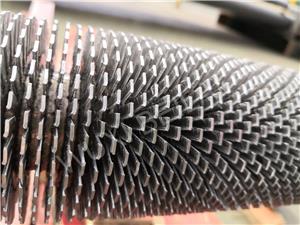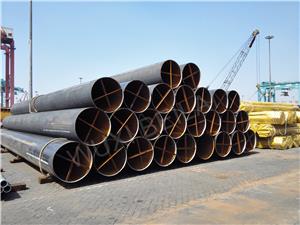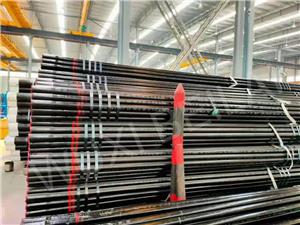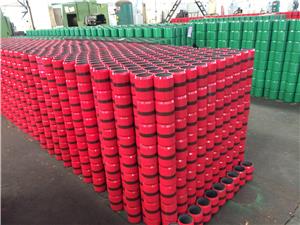What is petroleum cracking pipe?
Petroleum cracking refers to the process of cracking petroleum hydrocarbons into smaller molecules (such as ethylene, propylene, butadiene and other basic chemical raw materials) in a high-temperature environment. This process is crucial in the refining and petrochemical industries. Cracking reactions often occur in high temperature (400°C~900°C) and high-pressure environments, which places extremely high demands on pipeline materials for transporting cracked gas or liquid. As the core component for transmitting high-temperature media in the cracking unit, the performance of petroleum cracking pipes directly affects the stable operation of the equipment and the safety and efficiency of the entire production process.
Characteristics of petroleum cracking pipes
1. High temperature resistance
The petroleum cracking process is often accompanied by extremely high temperatures, especially in deep cracking or catalytic cracking reactions, where temperatures often exceed 600°C. Petroleum cracking pipes must have extremely high temperature resistance and maintain good mechanical properties in high temperature environments without softening, oxidation or deformation. For this reason, cracking tubes often use high-temperature alloy materials, which can withstand long-term high-temperature operation without affecting their structural stability.
2. Corrosion resistance
A variety of corrosive media are produced during the petroleum cracking process, such as hydrogen sulfide, chloride and other acidic or alkaline compounds. These chemicals are extremely corrosive and can quickly eat away at ordinary metal materials, causing pipeline failure. To meet this challenge, petroleum cracking pipes are often made of corrosion-resistant alloys or stainless steel, which can resist chemical corrosion for a long time and ensure the safety and durability of the pipeline.
3. Antioxidant properties
Oxygen in the air will oxidize with the pipe material at high temperatures, causing oxide scale to form on the surface of the material, weakening the strength and life of the pipe. Petroleum cracking pipes must have good oxidation resistance to maintain their surface integrity for a long time in high temperature environments and prevent structural damage caused by oxidation.
4. High strength and creep resistance
Petroleum cracking pipes need to withstand extremely high mechanical stress, especially in high-temperature and high-pressure environments. The pipes will generate thermal and mechanical stress due to temperature changes and medium flow. In addition, when cracked tubes are operated at high temperatures for a long time, they will also face the problem of material creep (that is, the slow deformation of the material under sustained stress). Therefore, petroleum cracking pipes must have high strength and excellent creep resistance to maintain their shape and structural stability in harsh environments.




